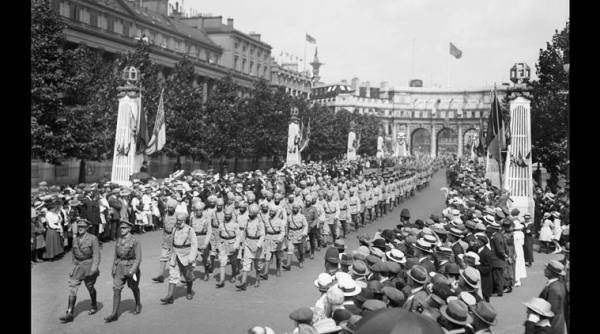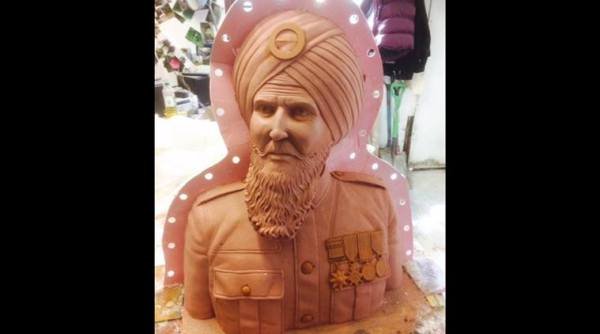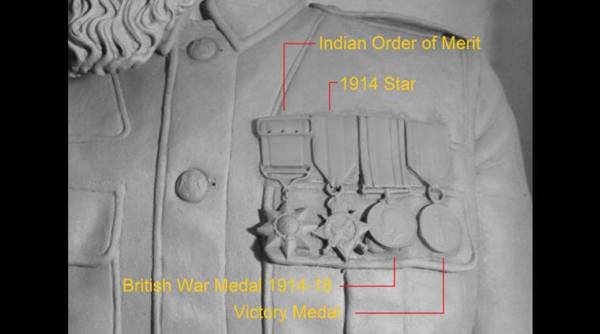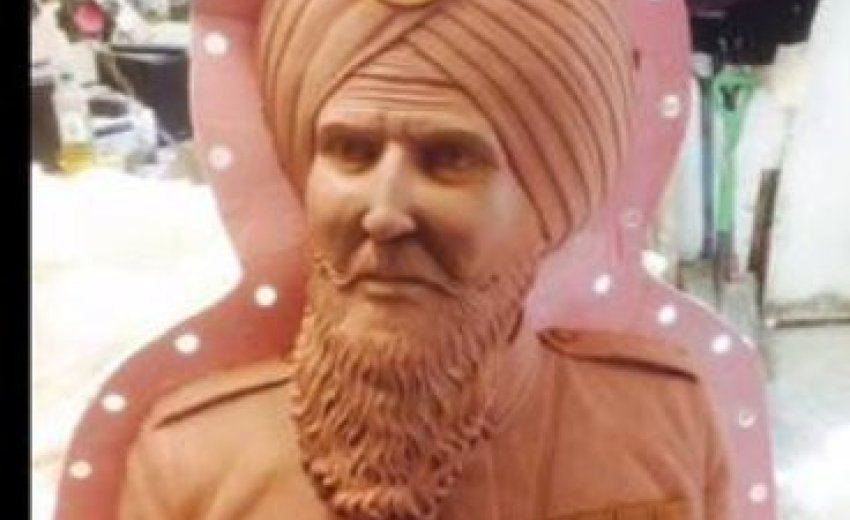A first-of-its-kind World War 1 National Sikh Memorial — commemorating Sikh soldiers who fought in the Great War — will come up in the UK next month.

A Sikh regiment that participated in World War I. (Source: Sikhsatwar.info)
October 27, 2015: In 1914, when World War I commenced, over 35,000 Sikh soldiers left their rural homes in then undivided India to serve in the British Indian army. These soldiers, with little understanding of the mechanisms of war, but with unshakeable belief in martyrdom, fought valiantly for the British, serving in places as far-flung as East Africa, Egypt, Europe and Mesopotamia (modern-day Iraq). By 1918, their numbers in the army had surged to over a lakh. While many of them won medals and gallantry awards, their sacrifice was forgotten over time.
Now, the valour of these soldiers is set to be etched in permanence, through a WW1 National Sikh Memorial that will come up at the National Memorial Arboretum, near Lichfield in Staffordshire, United Kingdom, on November 1. The Memorial is spearheaded by Birmingham-based filmmaker and British Army reservist Jay Singh-Sohal. “The unveiling will be held ahead of Remembrance Day on November 11,” he says, referring to the day observed in most countries to remember members of armed forces who died in the line of duty during the first World War.
Standing six-feet and two-inches high, the monument depicts the image of a sardar, representative of all the Sikhs who fought in the war. “We decided against creating a depiction of any single individual, as it goes against Sikh thought. Instead, our tribute is to all the 1.3 lakh soldiers who served in the army,” says Singh-Sohal. The bronze statue, nicknamed Subedar, is being built by Sculptor Castings, a fine art foundry in Basingstoke, England.

The model bust was conceptualised by artist Mark Bibby and features articles of Sikh faith such as the turban and a flowing beard. Having studied British military history for three decades, Bibby also read regimental history of that period and gathered various reference images and notes on the subject. “Living history groups and collectors helped in getting the minute details into place. I see this memorial as a dignified reminder of the role played by Sikhs, to which we are all indebted” says Bibby. Singh-Sohal also decided to exhibit some of the medals the soldiers could have been awarded.
In December 2010, he began Sikhs@War, an online repository to preserve the memories of the Sikhs’ contribution in both the World Wars. While the website subsequently emerged as a storehouse for the documentation of Sikh stories, Singh-Sohal always found something lacking — the current generation of British Indians was growing up unaware of the heroism showcased by Indians during the Great War. “Following all the films we had made, we wanted to ensure a lasting legacy. A piece of heritage such as a monument would certainly stand the test of time,” says the 32-year-old.
In August last year, along with the British Armed Forces Sikh Association, he launched a crowd-sourced campaign to gather funds for the memorial. One month later, they managed to reach their pledge of 20,000 pounds. “We had an overwhelming response, with little over 150 donors. These included non-Sikhs and donors from outside the UK,” says the former journalist.

The unveiling ceremony will also see the launch of the Sikh Chronicles, the official publication of the WW1 Sikh Memorial fund. “This book contains authoritative articles from experts and historians about the various theatres the Sikhs fought in, original archive images and commissioned artwork that depicts their heroism,” says Singh-Sohal.
While he tried to reach the families of the soldiers for the event — the process entailed tracking down four generations — they couldn’t get too far. “I’m confident they will visit Subedar in the future. With this memorial, I hope Indians everywhere continue serving humanity, taking inspiration from our forebears to fight against injustice and tyranny,” he asserts.
